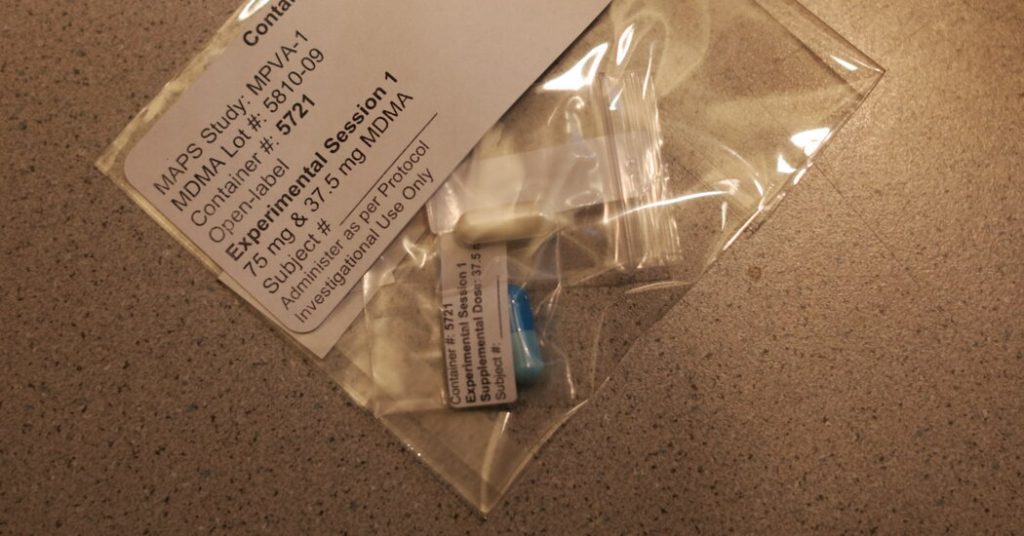An independent advisory panel of the Food and Drug Administration voted against the use of MDMA-assisted therapy for post-traumatic stress disorder, citing concerns about the study designs submitted by Lykos Therapeutics. Questions were raised about participants correctly guessing whether they had received MDMA, potential cardiovascular effects of the drug, and possible therapist bias. Panel members also expressed worries about the lack of detailed data collected on the potential for drug abuse. There were also concerns about the premature introduction of a treatment that may not be completely known to be safe or effective.
The FDA is not bound to follow the panel’s recommendations but typically does. If approved, MDMA-assisted therapy would be the first new treatment for PTSD in 25 years. The drug, known as Ecstasy, promotes feelings of empathy and social connectedness. While federal authorities and the Justice Department would need to take steps to downgrade the drug’s listing, the DEA might set production quotas for its ingredients. The daylong advisory panel meeting highlighted the complexities and challenges regulators face in evaluating a novel therapy tied to talk therapy and the need for new treatments for PTSD.
Lykos’s studies found that patients who received MDMA plus psychotherapy had significant improvements in their mental health, with over 86 percent showing a reduction in PTSD symptoms. Many participants no longer met the criteria for a diagnosis at the end of the treatment. However, the panel and FDA staff raised concerns about study design flaws, including functional unblinding, which led most participants to correctly guess whether they had received MDMA. While the overall study results were significant and lasting, many critics questioned the treatment’s effectiveness and called for rigorous regulations, prescribing controls, and patient monitoring.
Criticism of the Lykos study designs focused on the issue of functional unblinding, which affected many studies involving psychoactive compounds. The FDA, which helped design the trials, acknowledged these shortcomings and recently issued new guidance to address challenges faced by psychedelic researchers. Various organizations, including the Institute for Clinical and Economic Review and the American Psychiatric Association, have called for strict regulations and monitoring if the therapy is approved. Before voting, the panel heard from speakers with differing views on the application, with critics raising concerns about the organization behind the therapy and advocates sharing personal stories of its positive impact on PTSD symptoms.
Several speakers at the advisory panel meeting offered personal testimonies about the benefits of MDMA-therapy for PTSD. Cristina Pearse, who suffered from PTSD after a childhood assault, described the therapy as life-changing and emphasized the need for effective treatments to save lives. While the panel’s vote against MDMA-assisted therapy raises regulatory challenges and concerns about its efficacy, supporters argue that it could provide much-needed relief for patients struggling with PTSD. The FDA’s final decision is expected in August, with potential implications for future treatments and regulations in the field of mental health therapy.


